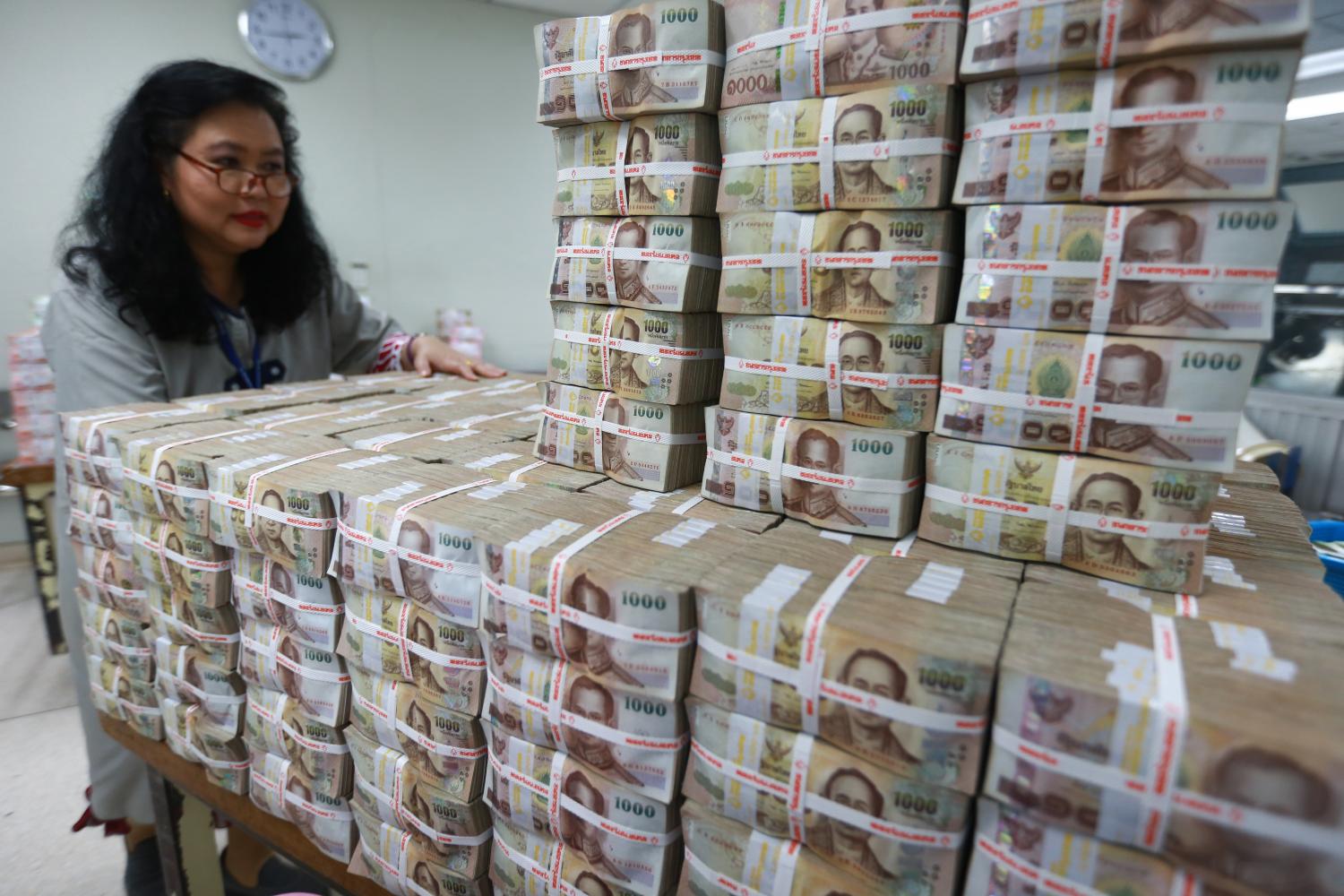
Thailand's banking sector is strong enough to cushion against a potential upsurge in bad debt and debt restructuring cases stemming from the coronavirus outbreak and official measures to contain the spread, says a senior official at the Bank of Thailand.
Banks have a sufficient capital buffer in the event of higher past-due payments and debt restructuring, said Don Nakornthab, senior director for the economic and policy department.
Unlike the 1997 Tom Yum Kung crisis, the banking system's financial position is solid now, Mr Don said.
At the end of 2019, the banking system's capital funds totalled 2.85 trillion baht, with a capital adequacy ratio of 19.6% and loan-loss provision of 701.2 billion baht, according to central bank data.
The non-performing loan coverage ratio was stable at 149.9% at the end of last year, and the liquidity coverage ratio remained high at 187.5%.
The banking system delivered a 30.8% rise in net profit to 270.9 billion baht in 2019.
As the coronavirus spreads in Thailand, authorities have temporarily shuttered all shopping malls, entertainment and sporting venues while allowing food stalls and restaurants to open only for take-out and delivery.
The measures have led to job losses, leave without pay and salary cuts.
Huge demand for aid
Siam Commercial Bank (SCB) co-president Apiphan Charoenanusorn said more than 100,000 clients with over 150 billion baht worth of total loans have requested financial aid to ease their burden after the bank launched the scheme in February.
These customers are from all segments, including corporate, small and medium-sized enterprises (SMEs) and retail.
The bank has set up a call centre and debt collection team tasked with helping customers with debt restructuring through several methods, Mrs Apiphan said.
"We intend to help the affected customers to ease their financial burden amid the difficult situation," she said. "Borrowers who have applied for financial assistance are in significant numbers, especially after the central bank's announcement on March 25."
The central bank last week set guidelines for the minimum assistance that financial institutions must offer to debtors to ease their financial burden amid the pandemic, which is effective from April 1.
All lenders, comprising commercial banks, specialised financial institutions and non-bank and leasing companies, are required to comply with the guidelines covering six types of loan product: credit cards; personal and car title loans; auto and motorcycle loans; machinery leasing; mortgages; and SME, nanofinance and microfinance loans.
Mrs Apiphan said auto loans have the highest demand for debt restructuring in terms of account numbers, followed by mortgages.
SCB is the country's biggest commercial mortgage lender, with a portfolio of 649.9 billion baht. Its hire-purchase car loans outstanding amounted to 219.2 billion baht at the end of last year.
Krungthai Bank data showed that the bank has already provided financial aid to 1,500 customers with combined loans of 30 billion baht, while another 70,000 clients with total loans of 250 billion baht are in the process.
The strongest demand for debt restructuring is seen in the bank's mortgage and personal loans.
GSB grace period
State-owned Government Savings Bank (GSB) offers a three-month grace period on principal and interest for all debtors who still service debt and miss payment for less than three months as of the end of March, said Chatchai Payuhanaveechai, the bank's president and chief executive.
The scheme, which runs until June 30, is automatically applicable to qualified debtors without any registration requirement, he said, adding that those who do not want to participate in the scheme can honour their debt as usual.
The bank's borrowers of personal loans and mortgages with a maximum outstanding balance of 3 million baht and SME loans with an outstanding balance up to 20 million are entitled to the three-month grace period on principal and interest.
The scheme is in line with the Bank of Thailand's guidelines on minimum financial assistance standards.
Mr Chatchai said GSB is also allowing its credit card debtors to pay a lower minimum amount of 5% from April 1 to next year, down from 10%, before rising to 8% in 2022 and back to 10% in 2023.
For those who are still unable to service debt after the three-month grace period has lapsed, they can request debt restructuring, he said.